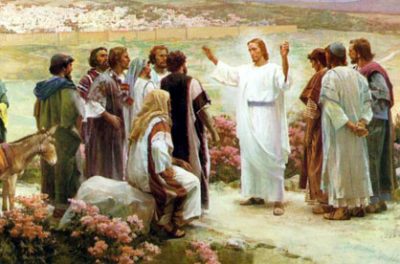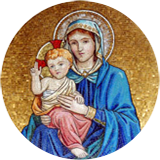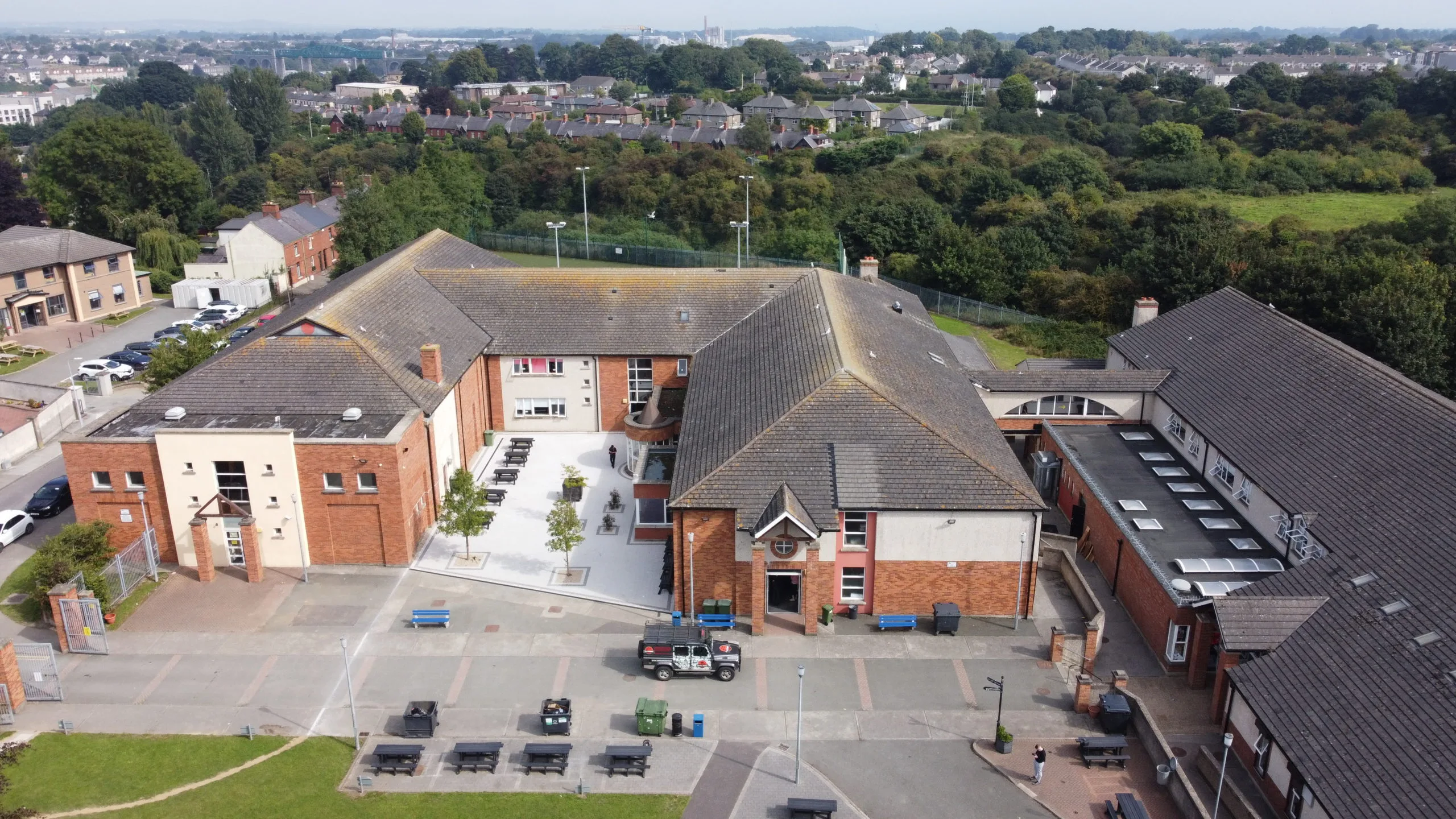Mass Readings
Liturgical Readings for : Tuesday, 24th February, 2026Léachtaí Gaeilge
Next Sunday’s Readings
Tuesday of the First Week of Lent
Jesus gives us a model prayer which he lived by and his favourite prayer for us to use daily.
FIRST READING
A reading from the prophet Isaiah 55: 10-11
My word will succeed in what it was sent to do.
Thus says the Lord:
As the rain and the snow come down from the heavens and do not return without watering the earth, making it yield and giving growth to provide seed for the sower and bread for the eating, so the word that goes from my mouth does not return to me empty, without carrying out my will and succeeding in what it was sent to do.
The Word of the Lord. Thanks be to God
Responsorial Psalm Ps 33: 4-5, 16-17, 18-19
Response The Lord rescues the just from all their distress.
1. Glorify the Lord with me. Together let us praise his name.
I sought the Lord and he answered me; from all my terrors he set me free. Response
2. Look towards him and be radiant; let your faces not be abashed.
This poor man called; the Lord heard him and rescued him from all his distress. Response
3. The Lord turns his face against the wicked to destroy their remembrance from the earth.
The Lord turns his eyes to the just and his ears to their appeal. Response
4. They call and the Lord hears and rescues them in all their distress.
The Lord is close to the broken-hearted; those whose spirit is crushed he will save. Response
Gospel Acclamation Mt 4:4
Praise and honour to you, Lord Jesus!
Man does not live on bread alone but on
every word that comes from the mouth of God.
Praise and honour to you, Lord Jesus!
GOSPEL
The Lord be with you. And with your spirit
A reading from the holy Gospel according to Matthew 6: 7-15 Glory to you, O Lord
You should pray like this.
Jesus said to his disciples: ‘In your prayers do not babble as the pagans do, for they think that by using many words they will make themselves heard. Do not be like them; your Father knows what you need before you ask him.
So you should pray like this:
‘Our Father in heaven, may your name be held holy,
your kingdom come, your will be done, on earth as in heaven.
Give us today our daily bread.
And forgive us our debts,
as we have forgiven those who are in debt to us.
And do not put us to the test, but save us from the evil one.
‘Yes, if you forgive others their failings, your heavenly Father will forgive you yours; but if you do not forgive others, your Father will not forgive your failings either.’
The Gospel of the Lord. Praise to you, Lord Jesus Christ.
___________________________
Gospel Reflection Tuesday, First Week of Lent Matthew 6:7-15
In today’s gospel reading, Jesus says, ‘Your Father knows what you need before you ask him’. Whereas Jesus encourages us to petition God for our needs, he is saying that our prayers of petition are not about making God aware of something God is ignorant of. In that sense, our prayer of petition does not change God, giving him information God doesn’t have, prompting God to do something God was not intending to do. Our prayer of petition changes us. It makes us more receptive to what God wants to give us. By naming what we need to God, we become more aware of what we need from God and become more open to what God wants to give us.
In the prayer that has become known as the Lord’s Prayer, Jesus names for us what it is we really need. We often pray for what we want, but what we want does not always correspond to what we need. According to Jesus, in the prayer he has given us, we need to acknowledge in our thoughts, words and deeds, the priority of God’s kingdom over all earthly kingdoms. When the promotion of earthly kingdoms is the priority, the result is very often destructive conflict. We are to pray for the coming of God’s kingdom, which Jesus identifies with the doing of God’s will, as Jesus reveals it to us in his teaching and by his life.
According to Jesus’ prayer, we need ‘daily bread’. We need sustenance for body and soul, and when others are deprived of such sustenance, we need to provide for them out of our resources. According to Jesus’ prayer, we need to pray for forgiveness for our sins against God and God’s people, while being ready to pass on that forgiveness to those who sin against us. Finally, we need to pray for the grace to remain faithful to the Lord’s way, especially when we are tempted to take a path that is not God’s will for us. We pray this prayer so often that we can fly through it. It is worth praying slowly and meditatively because it brings us in touch with our deepest needs before God.
__________________________
The Scripture Readings are taken from The Jerusalem Bible, published 1966 by Darton, Longman & Todd Ltd. and used with the permission of the publishers. http://dltbooks.com/
The Scripture Reflection is made available with our thanks from his book Reflections on the Weekday Readings The Word is near to you, on your lips and in your heart by Martin Hogan and published by Messenger Publications c/f www.messenger.ie/bookshop/
________________________________________________
For Video Scripture Reflections for next Sunday’s Gospel click here: https://www.catholicireland.net/lent-videos/

